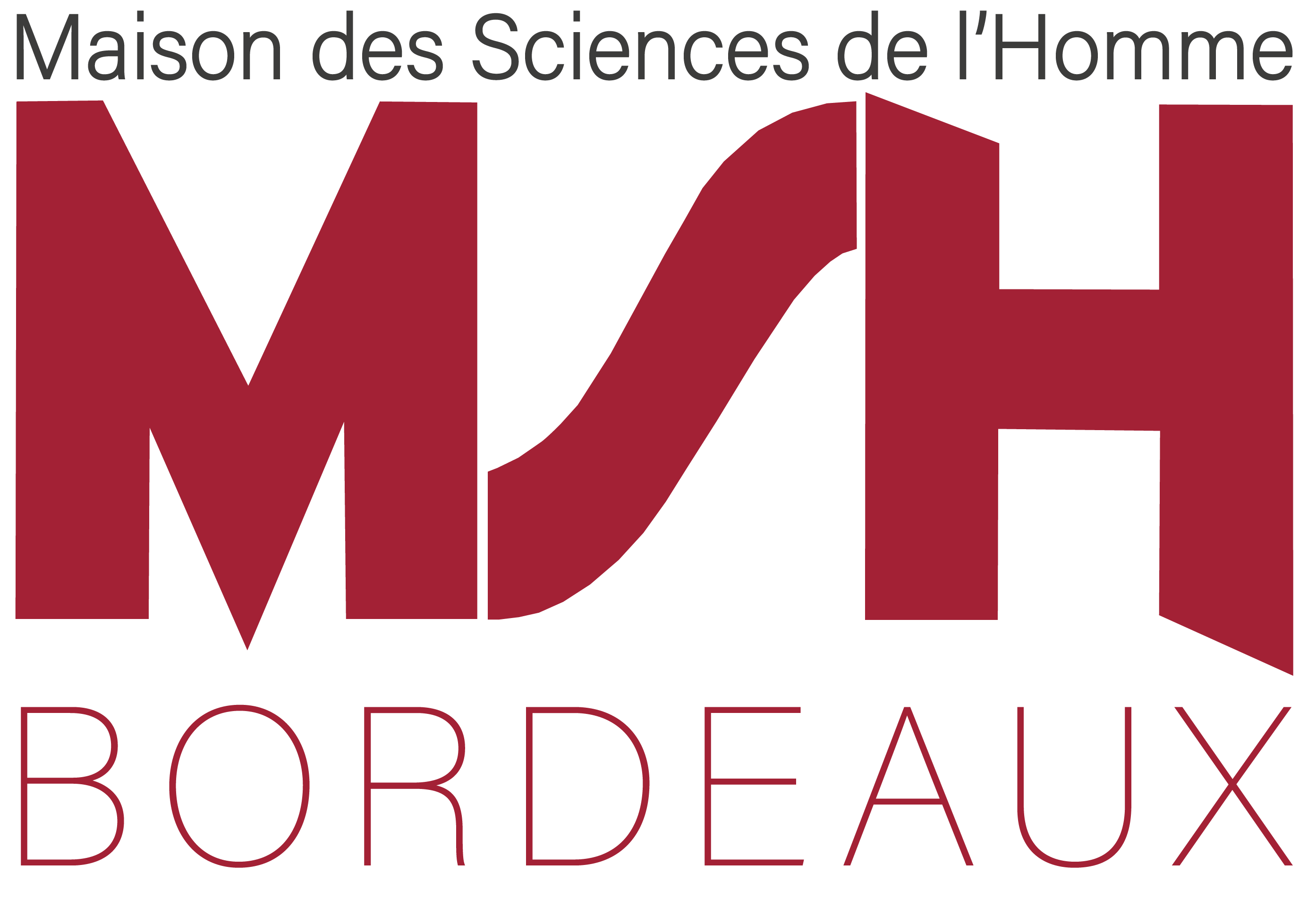
“Diglossi@” is a scientific collection from the MSH Bordeaux (Maison des Sciences de l'Homme de Bordeaux, UAR 2004 of the CNRS), based on multidisciplinary research findings and experiences developed on multilingual configurations integrating contacts asymmetrical between languages, some being used for more functions than others, characterized by their minority situation.
This collection is published by the Presses universitaire de Bordeaux (PUB) and distributed by the UN@ Éditions (Universités Nouvelle-Aquitaine). The fields which are the subject of monographic or comparative research in this framework come primarily from Europe in the broad sense and are open to spaces historically in contact with it. The originality of this collection is its diachronic dimension because it aims to accommodate works which refer to current or recent periods but also relating to ancient periods. In addition to descriptive work, it also encourages any approach focused on concepts or notions and themes applicable to the objects highlighted in its title.
The works included in the collection often relate to sociolinguistics but can also be part of disciplinary fields close to language sciences as well as others which generally fall within the human and social sciences, notably philology, epigraphy, history, archaeology, literature, law and political science. Multi- and interdisciplinary approaches are also encouraged.
“Diglossi@” follows on from the “Multilingualism and Minority Languages” collection of the MHSA (Maison des Sciences de l’Homme d’Aquitaine), opening it chronologically and disciplinaryly, and giving it an additional dimension through digital with open access.
Manuscripts can be submitted in French, English and Spanish.
Collection directed by:

Coline Ruiz-Darasse is a research fellow at the CNRS at the Ausonius Institute (UMR 5607, Bordeaux Montaigne University). She is a specialist in languages of fragmentary attestation and pre-Roman epigraphy, particularly in the Iberian (Paleo-Hispanic) and Celtic (Gallic) domains. A former member of the Casa de Velázquez and a graduate of Classical Letters, she has participated in several excavation sites and is currently working on graphic and linguistic exchanges in the pre-Roman West. Since 2020, she has led the ANR RIIG project (ANR 19-CE27-0003).
She is also coordinator of Axis 1 “Plurilingual Territories”
For more information: https://cv.archives-ouvertes.fr/colineruizdarasse
Works on Academia: https://cnrs.academia.edu/ColineRuizDarasse

Alain Viaut , emeritus research director at the CNRS (UMR 5478 Iker, CNRS – Bordeaux Montaigne University – UPPA), is a specialist in language contacts in diglossia situations. He works in particular on notions and situations linked to minority languages in Europe.
- Viaut, A., (dir.) (2021), Referent categories of minority languages in Europe , Bordeaux, Maison des sciences de l'homme d'Aquitaine.
- Moskvitcheva, S. & Viaut, A. (eds.) (2019), Minority Languages: Comparative Approach and Categorical Configurations from West to East (11 chapters), Cham, Springer Ed. (Language Policy Series).
Presentation of the collection by Coline Ruiz-Darasse , research fellow at the CNRS (Ausonius UMR 5607, Bordeaux Montaigne University) and Alain Viaut , emeritus research director at the CNRS (Iker UMR 5478, Bordeaux Montaigne University – UPPA).
- Duration: 05:10
Editorial committee:
- Madalina Dana , Greek History (Jean Moulin Lyon 3 University, HiSoMA, House of the Orient and the Mediterranean) – madalina-claudia.dana@univ-lyon3.fr
- Maria José Estarán , Languages in contact in Antiquity (University of Zaragoza) – mjestaran@gmail.com
- Noemí Moncunill , Languages in contact in Antiquity (University of Barcelona) – nmoncunill@gmail.com
- Alex Mullen , Classical Studies (University of Nottingham / PI of ERC project LatinNow – Nottingham/CSAD, Oxford) – alex.mullen@nottingham.ac.uk
- Coline Ruiz Darasse , Philology and archeology (CNRS, UMR 5607 Ausonius CNRS-Université Bordeaux Montaigne) – coline.ruiz-darasse@u-bordeaux-montaigne.fr
- Josemarí Vallejo , Philology and epigraphy (University of the Basque Country) – josemarivallejoruiz@gmail.com
- Véronique Bertile , Constitutional law and linguistic rights (University of Bordeaux – Faculty of Law and Political Science, CERCCLE), veronique.bertile@u-bordeaux.fr
- Victor Guset , Community law and linguistic rights (University of Rouen Normandy, CUREJ) – victor.guset@univ-rouen.fr
- Narcís Iglésias Franch , Language Sciences and Sociolinguistics (University of Girona, Language, Grammar and Discourse, Catalan Philology and Sociolinguistics) – narcis.iglesias@udg.edu
- Christian Lagarde , Hispanist studies and sociolinguistics (University of Perpignan Via Domitia / CRESEM) – chrislag09@gmail.com
- Svetlana A. Moskvitcheva , Language Sciences and Sociolinguistics (RUDN University, Institute of Modern Languages, Intercultural Relations and Migration, Moscow), moskvitcheva@mail.ru
- Alain Viaut , Language sciences and sociolinguistics (CNRS, UMR 5478 Iker CNRS-Université Bordeaux Montaigne-UPPA, Bordeaux) – alain.viaut@orange.fr
- Charles Videgain , Basque studies and dialectology (University of Pau and Pays de l'Adour, UMR 5478 Iker, Bayonne) – charles.videgain@univ-pau.fr
Publications:
It relied on field surveys in France and Russia as well as the necessary understanding of the historical and legal-political contexts of these glossonymization dynamics. This research, which relates to sociolinguistic typology and the concept of language in this discipline, is based on observations and analyzes first around Occitan and Tatar, with targeted comparisons in particular on Basque and the languages Finno-Ugric. Beyond different settings (culture, history), similarities appear on the basis of the cases selected. The naming of the geographical variant of a language may function as a local or regional synonym of the latter and not necessarily feed into competing representations of its encompassing name (for example, Aranese and Occitan, Mishar and Tatar). However, it can sometimes also sign or favor tendencies towards linguistic individuation (nagaybak, for example, in relation to Tatar).
This volume brings together articles prepared following a research program at the MSH in Montpellier and a conference which took place in November 2015. From the Eastern Mediterranean to the West, languages and writings are discussed. Egyptian, Phoenician, Greek, Gallic, Iberian and Latin. The political and economic situations of the different regions studied – Egypt, Greece, Africa, Italy, Gaul, Spain – are very distinct, and the multiple examples presented make it possible to show how through the prisms of multilingualism and onomastics, we can perceive and define the mutual influences of communities in contact.


